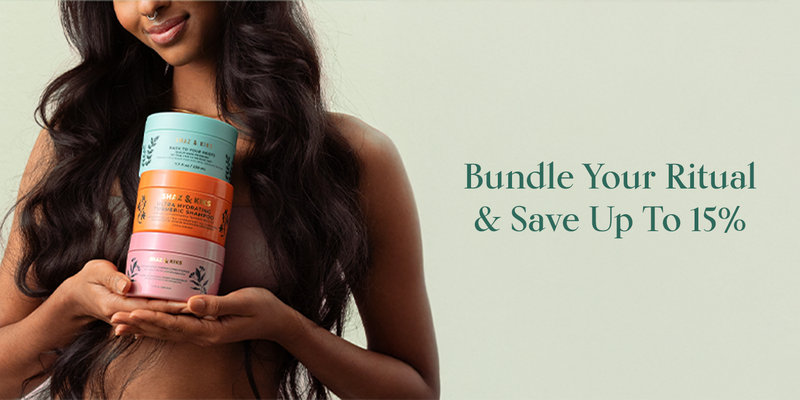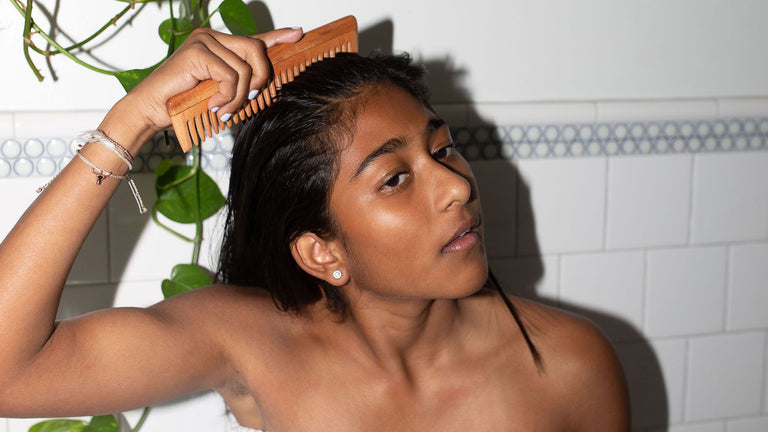We’ve all heard the old wives’ tale of brushing your hair a 100x a day. That honestly sounds like an arm workout and definitely not necessary to brush your hair that much. I know a lot of people who are averse to brushing or combing their hair, and to be honest I was one of those people for a few years. I always felt like there was too much hair on the floor after a good brush (that's not a bad thing, we all lose 100-125 strands a day). And maybe it was breaking my hair? But a few years ago, I got on board using a wooden wide-tooth comb and could really feel a difference. And low and behold, there are actual scientific benefits for combing your hair.
How Often Should You Brush/Comb Your Hair?
Experts say that the recommended frequency of hair brushing is determined by hair length and texture. Curly hair is different than straight hair. People with straight to wavy hair would benefit brushing their hair twice a day — getting ready in the morning and before you go to bed. People with curly and highly textured hair should brush their hair minimally, and only during wash days, in order to keep their hair from getting too frizzy and losing its texture.
We’re a fan of brushing and combing your hair, whether you do it twice a day or once a week, depending on your hair type and mood. You might need those heavier brush bristles to get out stubborn knots. But we want to focus on combing your hair as a really great way to take care of your scalp. And as we all know, healthy scalp = healthy hair.
What Are The Benefits of Combing?
1. Hair is fed by the bloodstream and when you comb through your scalp, you encourage blood to rise to the surface, causing micro-circulation. This increased circulation brings with it more oxygen and nutrients, nourishing the hair roots and promoting hair growth.
2. Combing activates your sebaceous glands, the little guys at your hair roots that produce your scalp’s natural oil (sebum). Along with keeping the scalp and hair moisturized, sebum coats the scalp surface and work to create the right pH balance, which is very important for healthy scalp.
3. As a second part to activating your oil glands, combing helps distribute those important oils throughout your hair. Natural oils are good, but who wants it to all just sit at the top of their head? The oils that come from your sebaceous glands are a natural conditioner, and combing your scalp, down the hair shaft, and to the ends of your hair helps condition the whole hair. This is basically free conditioner guys!
4. Combing helps to loosen and remove dead skin which can clog the pores of the scalp and block the follicles, causing scalp irritation as well as affecting hair growth.
On a personal note, switching over to a wide-tooth wooden comb has been a game changer for me and my hair. I still use my occasional brush to get out bad tangles but I start the day with a few swipes of my comb and it feels like ‘natural dry shampoo’, because it gives the same effects — fluffs up my hair, gives some volume, makes it look fresh. And gives waaay less static and that harsh feeling than brushing does. On wash days, I usually massage oil into my scalp and strands and then spend a minute (it's probably closer to 20 seconds) combing, making sure the oil distributes well and it’s the gentlest way for me to detangle.
Also the comb feels so good on my scalp, so there’s always that…









